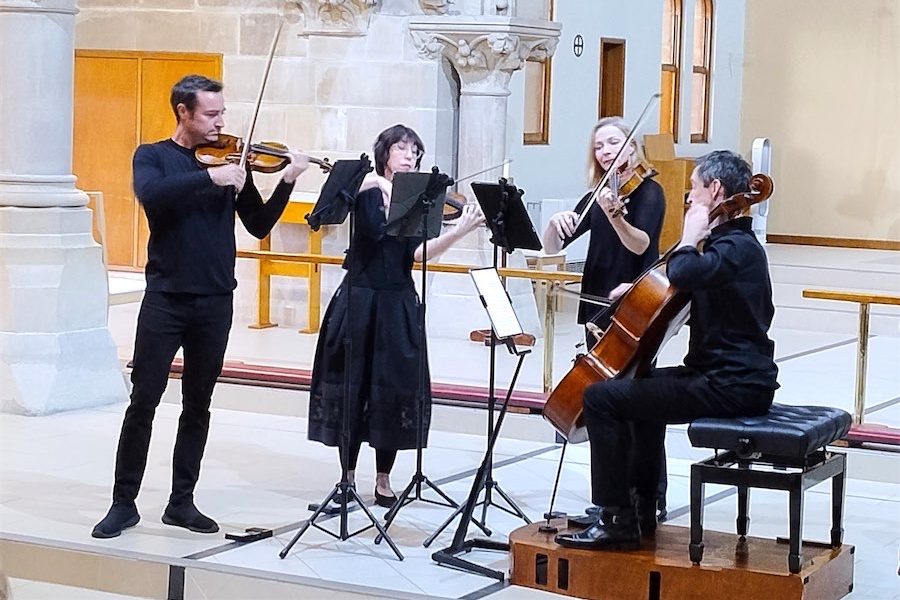
Music / Phoenix Collective Quartet. At All Saint’s Church, Ainslie. March 22. Reviewed by ROB KENNEDY.
From Haydn to Radiohead, the programming of the Phoenix Collective Quartet is always eclectic, and the music, always electric.
Opening with the String Quartet op 64 No. 5 Lark (1790) by Joseph Haydn, the musicians were, violin 1 and artistic director, Dan Russell; violin 2, Pip Thompson; viola, Ella Brinch; cello, Andrew Wilson.
The Lark is a light and delightful quartet that has moments of fast and powerful runs which grab a listener’s attention. As Brinch said in her opening monologue on the Lark, Haydn had found something agreeable in his formula for the string quartet. It pleased the audience and the players.
The slow movement is an intricate weaving of sad, clear tunes. Its pulse around a resting heartbeat sat perfectly in the mix of its compositional techniques. The playing reflected the workings of the music, with an equal balance achieved among the whole four movements.
Béla Bartók’s String Quartet No. 3 in C sharp minor (1927), followed. Apart from the quality of the writing, there were no similarities between the first and second work, except they consisted of four movements.
C sharp minor is a powerful and stark key. Through consistent variation, haunting clashes of tonalities, weaving and winding textures, profound chords, dazzling techniques and dramatic dynamics emerges music with a serious statement.
Bartók’s musical language set the mode for many composers who followed, even today’s composers still draw on his enduring legacy. Not tuneful, but emotional. Harsh yet enthralling. Like an unearthly entity whispering to the living, this quartet asks a lot of a listener, but the rewards are many. Alarming rhythms and subtle expressions fill this complex music. And Phoenix made it sound strong, and energetic. It was a living exciting thing.
After the interval, in six short movements, Sonnets et Rondeaux (2007) by Giovanni Sollima. Born into a family of musicians in 1962, Sollima studied cello and composition. Over his career he has performed with Claudio Abbado and Martha Argerich while composing for the concert hall and the cinema.
With extended techniques, slides and left hand pizzicato while bowing with the right on the cello, then harmonics, this mysterious work was also playful and foot-tapping as it crossed styles and spirited rhythms. With a touch of the Celtic and singing tunes, it went from swinging to the eerily sad and back again.
Radiohead is one of the best-known experimental rock bands in the world. They create music that is memorable, diverse and catchy.
All arranged by Wilson on cello, they began with a song titled 15 Step. It had slapping to imitate percussion, inter-filled with the tune on first violin, then into the meat of the music; it sounded as good as the original.
Then the soft song True Love Waits, which is akin to a folk tune. Delightfully sweet, with a constant pizz on the cello, it melted into the ear. Then Paranoid Android, this work doesn’t have a dull moment. The arrangement and the performance said electric and eclectic as it spoke of a weird and disturbing world. To end this enticing concert they encored with another Radiohead tune, the gentle Fake Plastic Trees.
Who can be trusted?
In a world of spin and confusion, there’s never been a more important time to support independent journalism in Canberra.
If you trust our work online and want to enforce the power of independent voices, I invite you to make a small contribution.
Every dollar of support is invested back into our journalism to help keep citynews.com.au strong and free.
Thank you,
Ian Meikle, editor








Leave a Reply